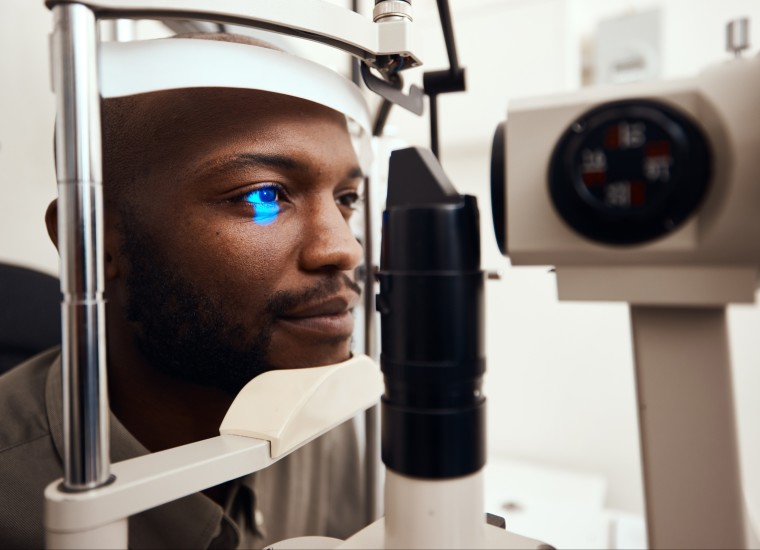All Categories
Featured
Table of Contents

Normal eye assessments are vital for keeping good vision and detecting possible eye wellness concerns early. Nevertheless, the regularity of these tests can vary considerably based upon an individual's age, way of living, and general wellness. Understanding the advised timetable for eye exams can aid make sure that individuals of any ages receive proper care and monitoring for their eye health and wellness.
Infants and Toddlers (0-2 Years)
For babies and young children, eye examinations are critical for identifying any type of prospective vision problems beforehand. The American Academy of Ophthalmology suggests that a kid's very first eye exam ought to occur at around six months of age. During this preliminary browse through, the eye care professional will assess the kid's aesthetic growth and check for any type of apparent eye problems.Following this first test, it is advised that kids have one more eye test at age 3. This visit will certainly concentrate on assessing the youngster's total visual feature, including eye positioning and the capability to track things. If no concerns are identified, the following exam needs to be arranged prior to the child begins institution, generally around age five or six.
School-Aged Youngsters (6-18 Years)
Once kids get to college age, regular eye exams must be scheduled each to 2 years. Vision is essential for finding out and development, and lots of colleges conduct vision screenings. Nevertheless, these screenings do not replace a comprehensive eye exam by an eye care expert.For youngsters included in activities or sports calling for significant aesthetic focus, annual eye tests may be recommended. Furthermore, if a kid displays indications of vision troubles-- such as problem checking out, scrunching up your eyes, or regular migraines-- a visit to the eye medical professional ought to be set up as soon as feasible.
Youthful Grownups (19-39 Years)
Young person generally have less vision modifications than older age, but regular eye tests remain crucial. The basic suggestion is to schedule an eye examination every 2 years throughout this duration. Individuals with specific risk variables-- such as a household history of eye illness, diabetes, or those that put on contact lenses-- must think about yearly eye exams.In addition, those that invest significant time on digital tools might experience electronic eye stress. If symptoms such as dry skin, fatigue, or obscured vision happen, it might be sensible to see an eye treatment expert faster.
Adults (40-64 Years)
As people get in midlife, the probability of creating vision issues boosts. Adults aged 40 to 64 need to arrange eye exams each to two years. This age team might start to experience presbyopia, an all-natural age-related condition that makes it challenging to concentrate on close items. Eye tests can additionally assist discover various other usual age-related conditions such as glaucoma, cataracts, and macular degeneration.If individuals in this age team have threat variables like hypertension or diabetic issues, they may call for more regular evaluations to check their eye health and wellness very closely.
Elders (65 Years and Older)
For elders, normal eye exams become even much more essential. The American Optometric Organization recommends that people matured 65 and older have an eye test at the very least yearly. Older adults go to a higher danger for various eye conditions, consisting of cataracts, glaucoma, and age-related macular degeneration. Early detection and treatment of these conditions can avoid vision loss and boost the quality of life.Verdict.
Understanding the suitable schedule for eye tests based upon age is essential for preserving ideal eye health and wellness throughout life. From infants to senior citizens, normal eye examinations play an essential role in detecting concerns early and ensuring that vision continues to be sharp. By sticking to these standards and talking to an eye care expert, people can take proactive steps toward protecting their vision and general health and wellness. Whether it's a kid's very first visit or an elderly's annual exam, prioritizing eye treatment is a financial investment in long-lasting well-being.Table of Contents
Latest Posts
A Glamorous Escape: The Claridge Indoor Swimming Pool
Published en
1 min read
The Boogaloo Sports Bar & Grill at FunCity Resort Hotel: Where Enjoyable Fulfills Flavor
Published en
1 min read
The Advantages of Custom Furnishings: Why It's Worth the Investment
Published en
0 min read
More
Latest Posts
A Glamorous Escape: The Claridge Indoor Swimming Pool
Published Feb 09, 25
1 min read
The Boogaloo Sports Bar & Grill at FunCity Resort Hotel: Where Enjoyable Fulfills Flavor
Published Feb 04, 25
1 min read
The Advantages of Custom Furnishings: Why It's Worth the Investment
Published Jan 25, 25
0 min read